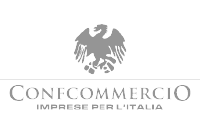Below you will find the general procedure for buyers purchasing a property in Italy:
Firstly, to select the right property for you we should establish:
- Do you know the territory in which you want to buy? E.g. how many times have you visited? What are your reasons for looking in this area?, How well do you know Tuscany and its varied regions?
- What is the reason for your purchase? E.g. Holiday home, relocation, business etc.
- How will you be financing your purchase? E.g. Cash buyer, mortgage required, house still to sell? – This is an important factor for the seller.
- Your most important property criteria – E.g. New or old building? detached or terraced? Close to infrastructure? – E.g. hospitals, restaurants, shops etc., Outside space or not? To renovate or fully restored?, Location? E.g. sea, mountains, countryside, city, How far from nearest airport etc.…
Once established 1, 2, 3, 4, we are able to make a selection of suitable properties to view.
VIEWING
For most, this is one of the most exciting parts of the property buying process where pictures become a reality. Many purchasers know instinctively that the property is right for them, some ‘fall in love’ at first sight, others have a ‘check-list’ of criteria that need to be fulfilled. Whatever a property viewing means to you it is always an ideal opportunity to ask any questions you may have either about the property itself or the buying process.
PURCHASE PROPOSAL
So, you have found the perfect property and have made the all-important decision to purchase. At that point the next step is to submit a formal written offer or what the Italians call a proposta irrevocabile d’acquisto (an irrevocable purchase agreement). This will be drafted by us and signed by the buyer and submitted to the seller with a small deposit payment (usually around €5,000 – €10,000). Once the purchase proposal has been accepted the property is withdrawn from the market. When this is in place, the parties can proceed directly to the completion deed with the notary or opt to sign an intermediary contract (comprommesso).
COMPROMESSO or PRELIMINARY CONTRACT
This is a legally-binding document which states the agreed sale price, the completion date, the details of the property and the parties, and the deposit to be paid at the signing of this contract. It can vary between 20-30% of the purchase price. It may also include any other relevant legal details or conditions. The ‘compromesso’ is a standard contract which describes the property as it appears in the land registry. The seller also states that the property is unencumbered by legal or financial liabilities, and would be liable should any arise. It is a legal requirement that the compromesso must be registered for fiscal reasons within 20 days of the signing against payment of a small tax
Hit-Italy’s agency fees (usually 3 %) are payable at this stage.
DEPOSIT (Caparra Confirmatoria)
In the event of a default in completing on the agreed terms, the buyer will lose the deposit paid and if it is the vendor that will not complete, they have a legal duty to pay the buyer twice the amount received as deposit. However, it is possible to also force the sale through the courts and to apply for damages in excess of the deposit amount.
ATTO NOTARILE/ROGITO
The final contract or ‘l’atto notarile’ is usually signed 1 – 3 months later (the date having been set in the compromesso). It is signed by both parties, the balance is paid and the ownership of the property is officially transferred.
The buyer and the seller are required to be present at the notary’s (a public officer, appointed by the state and whose role is to authenticate and attest acts.) office for the signing of the notary deed.
If the buyer or seller cannot be present it is possible to arrange a power of attorney which involves signing a document before a public notary in your country and having it legalised. If the buyer wishes to be present but the notary considers that he/she does not speak good enough Italian to understand completely, then all the documents must be translated and official bi-lingual interpreter needs to be present. (HIT will organise this for you) The purchase taxes and notary fees due are payable when you sign the final contract.
As well as paying the balance for the property, the buyer must also pay:
* PURCHASE TAX – which is either 2% (plus various small taxes) if the buyer purchases the property as his first residential home in Italy and applies for residency in the local area, or 9% if the buyer already owns a property in Italy or does not wish to apply for residency. NB Between private individuals the tax is calculated on the cadastral value of the property and not the purchase price. The cadastral (land registry) value is usually about 20-50% of the market value.
* NOTARY FEES – only the buyers pay the notary fees. Approx. 1-2% of the value of the property.
* TECHNICAL ASSISTANCE – SURVEYOR’S REPORT – Typically 1% of the value of the sale. The geometra (like a surveyor) will check all the documents for the house are up-to-date and legal, that buildings have fully registered title and that the house complies with planning regulations and will present his report to the notary for the completion of the sale. Please note this is not the fee for a structural survey. It is of course also possible to have a structural survey carried out.
RUNNING COSTS
Annual Taxes – TASI (formerly IMU and ICI) is an annual local council tax determined by the size and quality of the property. (PAYABLE TWICE A YEAR IN JUNE AND DECEMBER)
Refuse tax – TARI – payable in 4 instalments or all at once if you prefer.
Utilities – electricity, water, gas/oil etc. for heating, phone etc.
Condominium fees – if you buy a property which is part of a group of properties which share some communal areas – gardens, driveway, swimming pool, tennis court etc. then you will be required to pay condominium expenses. They vary as to the type and size of communal areas on the property.
The easiest way to pay most of these is by direct debit or online or via a property manager, although some you will need to pay at the post office.
CODICE FISCALE
In order to purchase a property in Italy you will need a ‘codice fiscale’ – a tax code and an Italian SIM Card for your Italian cellar phone and open an Italian Bank Account. HIT Italy can help and assist to obtain this.













